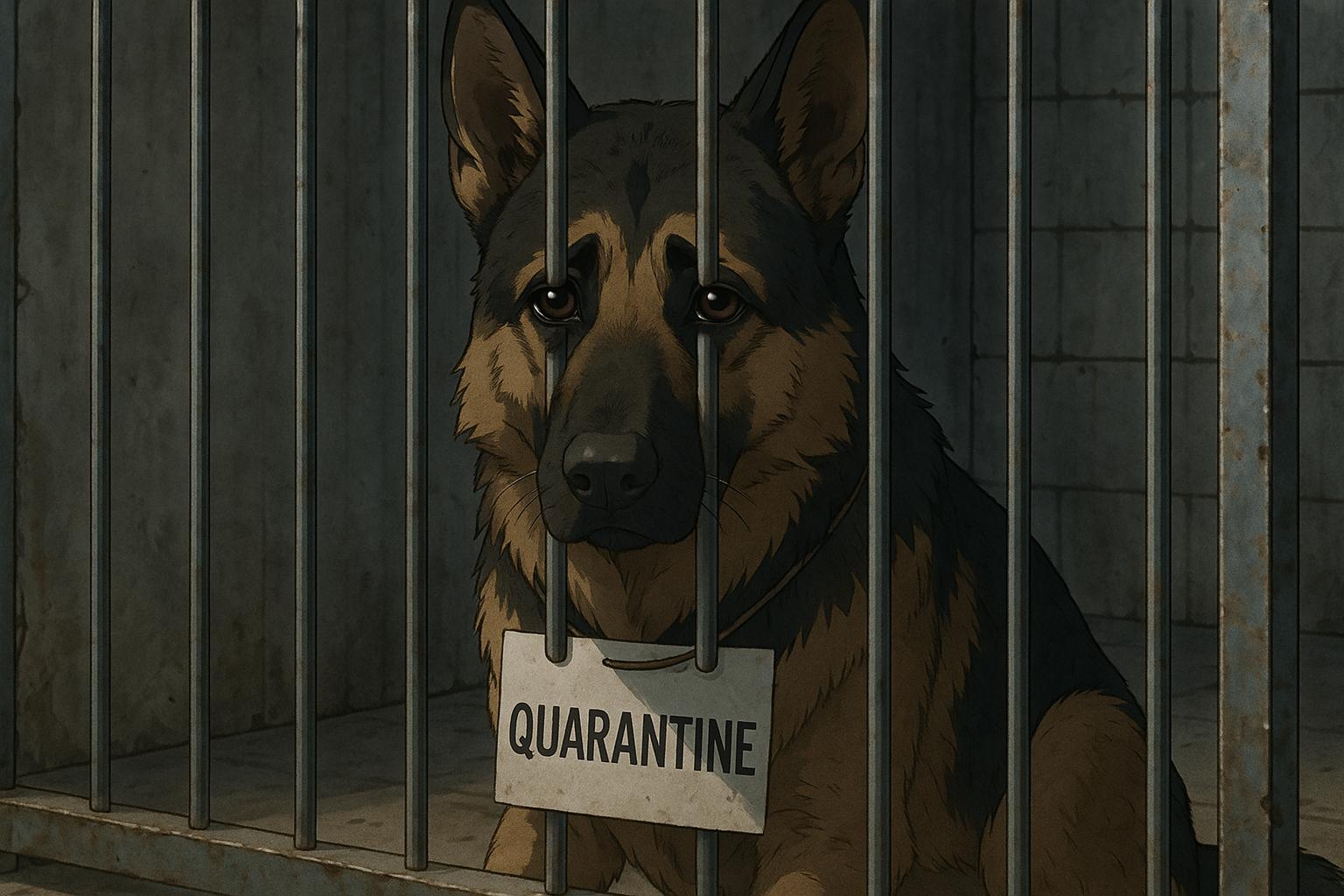Taxpayer-funded costs surrounding the welfare of asylum seekers have reached an unusual new pinnacle, following reports that significant funds are being allocated for the quarantine of a German Shepherd. This dog, which crossed the English Channel along with a group of migrants in a dinghy, has become the centre of controversy, marking what is believed to be the first instance of its kind concerning animal quarantine linked to migrant crossings.
As the dog requires isolation due to potential health risks, including rabies, it must undergo a thorough veterinary assessment, receive vaccinations, and stay in quarantine for four months. This unforeseen expenditure has drawn sharp criticism from opposition politicians. Shadow Home Secretary Chris Philip labelled the situation as "barking mad," claiming that the costs associated with the dog's quarantine will burden British taxpayers significantly. He emphasised that the handling of both human and animal crossings reflects a broader failure of border control by the Labour Party.
This incident unfolded against the backdrop of rising numbers of migrants attempting to cross the Channel, with reports indicating that 1,183 individuals made the perilous journey in a matter of days. Government responses to this crisis have included discussions around the implementation of more stringent border regulations and modernised enforcement strategies.
In a related development, the UK’s National Crime Agency recently trained two German short-haired pointers to detect rubber used in dinghies, a strategic initiative aiming to intercept smuggled boats before they reach northern France. This innovative use of canine capabilities underscores the government's intent to improve security measures within the context of an escalating migrant crisis. The dogs serve a dual purpose, as they not only detect vessels that could transport migrants but also reinforce the ongoing effort to ensure border integrity.
Presently, the German Shepherd in question is residing at one of six approved quarantine facilities, such as the Animal Inn near Dover. There has even been speculation regarding the possibility of the animal being adopted to assist Border Force operations.
This incident resonates with the experiences of various refugees, particularly those from Ukraine, who have recently faced challenges regarding dog quarantines. Lengthy delays in bringing their pets to the UK due to stringent health checks have been documented, illustrating the emotional and logistical difficulties encountered by those seeking refuge. In one notable case, a couple's adopted rescue puppy was seized and quarantined after fraudulent rabies test results surfaced, highlighting the critical nature of regulating animal health documentation to prevent disease spread.
As the debate surrounding the treatment of migrants and their animals continues, calls for a review of the current system have intensified. Critics argue that a consistent approach is needed to ensure that both humans and animals are handled with care while maintaining public health and safety. Meanwhile, the system remains under scrutiny, with reports indicating that the number of crossings has placed considerable strain on the UK’s asylum framework, necessitating urgent reforms to address the growing crisis.
The UK Government maintains that biosecurity is a paramount concern. A representative stated that where animals enter from unlisted countries, quarantine measures are vital to preempt dangerous diseases like rabies. As calls for enhanced border security grow louder, the administration reiterates its commitment to ensuring both human safety and the health of domestic animals, albeit under increasingly complex circumstances.
Reference Map
- Paragraph 1: [1]
- Paragraph 2: [1]
- Paragraph 3: [1], [2]
- Paragraph 4: [1]
- Paragraph 5: [3], [4]
- Paragraph 6: [3], [4], [6]
- Paragraph 7: [5], [7]
Source: Noah Wire Services
